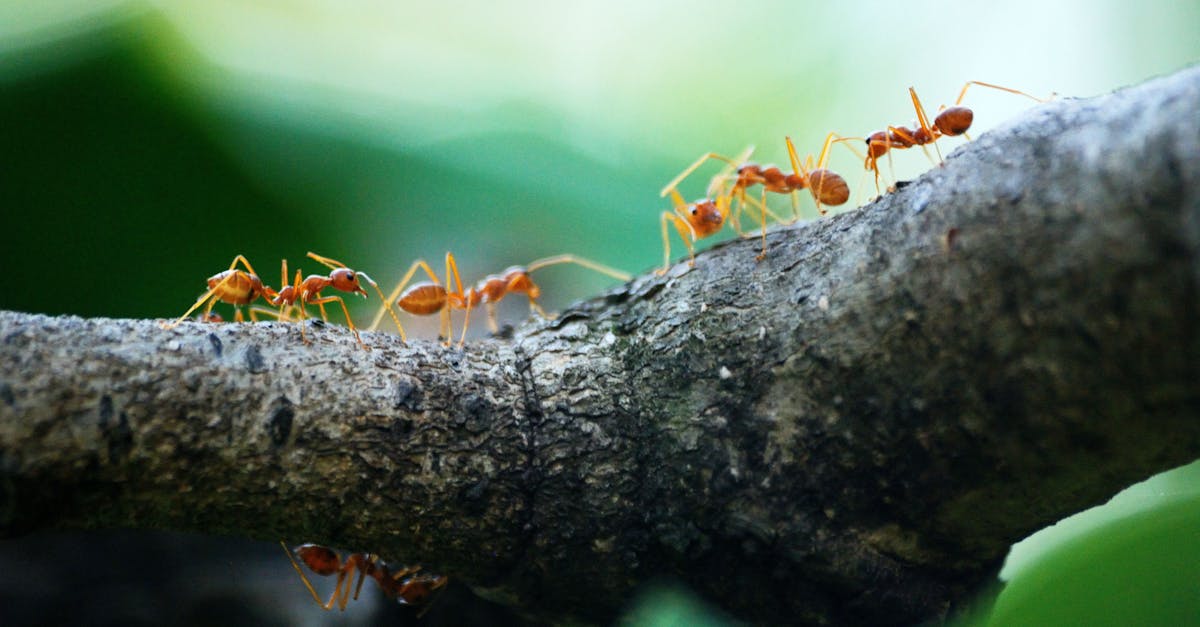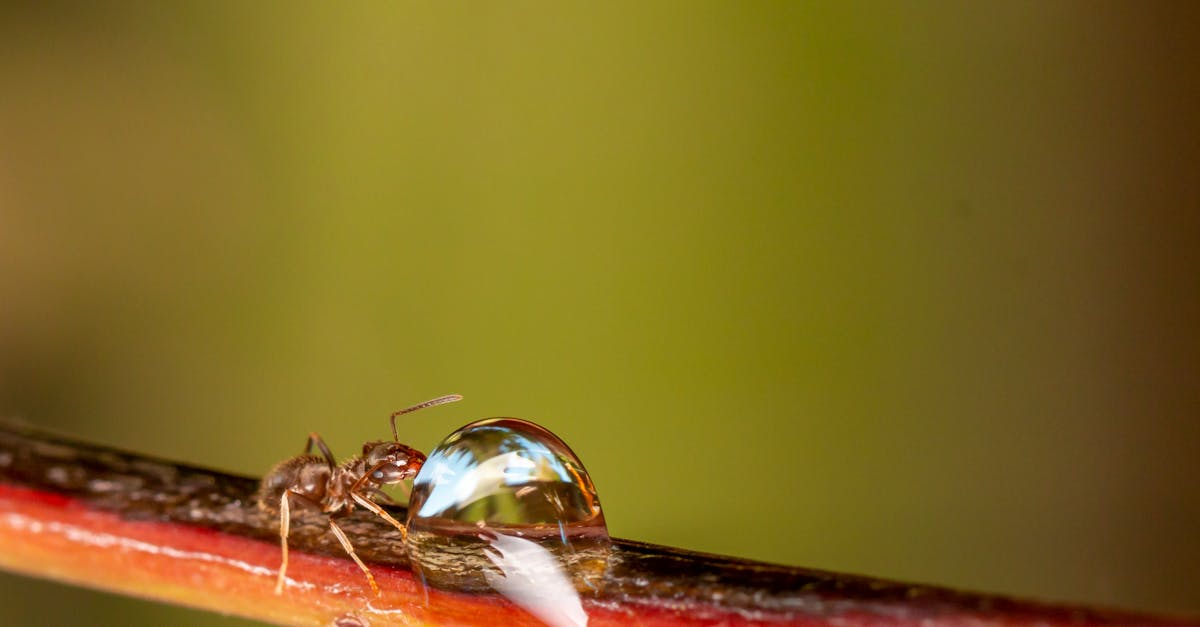My Unexpected Journey into Ant Keeping
I’ve often wondered what makes a pet truly great. Is it their loyalty, their ability to provide companionship, or perhaps the low maintenance they require? As someone who has had the pleasure of owning various pets over the years, I’ve been there—cleaning up after dogs, feeding cats, and even maintaining aquariums. But it was during one unassuming afternoon that it dawned on me: ants could be the perfect low-maintenance pet. Yes, you read that right—ants!
Imagine if you could have a pet that requires minimal care, offers endless fascination, and even teaches you a thing or two about nature. That’s when I realized that keeping ants as pets could be a game-changer. If you’re like me and love the idea of having a pet but dread the high maintenance that often comes with it, you might find this helpful.
The Fascination with Ants: More Than Just Tiny Insects

A World of Intrigue in a Small Package
The thing is, ants are often overlooked as mere pests, but they are incredibly fascinating creatures. Picture this: a colony of ants working together in perfect harmony, each one playing a crucial role in the survival of their community. It’s interesting how these tiny insects can teach us so much about teamwork, resilience, and the importance of every individual’s contribution.
One thing I’ve learned from my experience with ants is that they are far from boring. Watching them build intricate tunnels, forage for food, and communicate with each other through chemical signals is nothing short of mesmerizing. It hit me that there’s so much more to ants than meets the eye.
The Low-Maintenance Dream
If you’ve ever had a pet that required constant attention and care, you’d be surprised at how low-maintenance ants can be. To put it simply, ants don’t need daily walks, grooming, or even a lot of space. All they need is a well-designed ant farm, some food, and a bit of water. Speaking from experience, this is a far cry from the daily responsibilities that come with more traditional pets.
Educational and Entertaining
It’s interesting that keeping ants can be both educational and entertaining. For example, children can learn about biology, ecology, and the importance of teamwork by observing an ant colony. Adults, too, can find joy and relaxation in watching these industrious insects go about their daily tasks. It reminds me of how much we can learn from nature if we just take the time to observe.
Setting Up Your Ant Farm: A Step-by-Step Guide

Choosing the Right Ant Farm
If you’re new to the world of ant keeping, the first step is to choose the right ant farm. There are various types available, from simple plastic containers to more elaborate glass setups. Here’s a thought: start small and upgrade as you become more experienced.
- Plastic Ant Farms: Affordable and easy to set up, perfect for beginners.
- Glass Ant Farms: More durable and aesthetically pleasing, ideal for those looking to invest in a long-term setup.
- DIY Ant Farms: If you’re crafty, you can even build your own ant farm using materials like acrylic sheets and silicone.
Selecting Your Ant Species
Now that I think about it, not all ant species are suitable for keeping as pets. Some are more aggressive, while others are more docile and easier to care for. If you ask me, the best species for beginners are:
- Harvester Ants: Known for their large size and fascinating behavior.
- Carpenter Ants: Easy to care for and interesting to observe.
- Sugar Ants: Small and lively, perfect for smaller setups.
Setting Up the Habitat
Once you’ve chosen your ant farm and species, it’s time to set up the habitat. This might sound strange, but ants need a specific environment to thrive. Here’s a step-by-step guide:
- Prepare the Ant Farm: Clean the farm thoroughly to ensure there are no harmful chemicals.
- Add Substrate: Use sand, soil, or a special ant gel as the substrate for your ants to tunnel in.
- Create a Moisture Source: Ants need a bit of moisture to survive. A small water dish or a damp sponge will do the trick.
- Add Decorations: Small rocks, twigs, and leaves can make the habitat more interesting for your ants.
- Introduce the Ants: Carefully transfer your ants into their new home and watch them start exploring.
Caring for Your Ant Colony: Tips and Tricks

Feeding Your Ants
One time, I forgot to feed my ants for a few days, and it hit me that they are quite resilient. However, to keep them healthy and happy, regular feeding is essential. Ants are omnivorous, so they can eat a variety of foods. Here’s a list of some common ant foods:
- Sugar Water: A simple mixture of sugar and water is a favorite among many ant species.
- Fruits: Small pieces of fruit like apple or banana can provide essential nutrients.
- Insects: Ants love protein, so small insects like fruit flies or bits of cooked meat can be a great addition.
- Seeds and Grains: Some species, like harvester ants, prefer seeds and grains.
Maintaining the Habitat
To keep your ant farm in top condition, regular maintenance is key. If you’re like me and prefer low-maintenance pets, you’ll be pleased to know that this doesn’t require much effort. Here are some tips:
- Clean the Farm: Remove any uneaten food and debris to prevent mold and bacteria growth.
- Check the Moisture Level: Ensure the substrate remains slightly damp but not waterlogged.
- Monitor the Ants: Keep an eye on your ants’ behavior and health. If you notice any issues, such as lethargy or unusual behavior, it might be time to investigate further.
Troubleshooting Common Issues
It’s interesting how even low-maintenance pets can sometimes present challenges. Here are some common issues you might encounter and how to solve them:
- Escaping Ants: If your ants are escaping, check for gaps or cracks in the ant farm and seal them. You can also use a barrier like petroleum jelly around the edges to prevent escapes.
- Mold Growth: If you notice mold in the substrate, remove the affected area and ensure the habitat is not too damp.
- Aggressive Behavior: Some ant species can become aggressive. If this happens, try separating the aggressive ants or providing more food and space to reduce stress.
The Benefits of Ant Keeping: Why You Should Give It a Try

A Unique and Fascinating Hobby
One thing I’ve learned from keeping ants is that it’s a unique and fascinating hobby. Unlike more traditional pets, ants offer a glimpse into a miniature world that is often hidden from view. It’s interesting that something so small can provide endless entertainment and education.
Low Cost and Low Maintenance
If you ask me, one of the biggest advantages of keeping ants is the low cost and maintenance involved. There’s no need for expensive food, grooming tools, or frequent vet visits. All you need is a well-designed ant farm, some basic supplies, and a bit of time to enjoy watching your ants thrive.
Educational Value
Keeping ants can be incredibly educational, especially for children. It’s a great way to teach them about biology, ecology, and the importance of teamwork. Imagine if every classroom had an ant farm—students would have a hands-on way to learn about the natural world.
Stress Relief
Watching ants go about their daily tasks can be surprisingly relaxing. It reminds me of how calming it can be to observe nature. If you’re looking for a way to unwind after a long day, spending a few minutes watching your ants can be a great way to de-stress.
Taking the Plunge: How to Get Started with Ant Keeping
Do Your Research
If you’re interested in giving ant keeping a try, the first step is to do your research. There are plenty of resources available online, including forums, blogs, and YouTube channels dedicated to ant keeping. You can probably relate to the excitement of discovering a new hobby, and trust me, there’s a lot to learn about ants.
Start Small
If I had to guess, you might be hesitant to dive headfirst into ant keeping. That’s perfectly fine! Start with a small, simple setup and see how you like it. As you gain more experience and confidence, you can always upgrade to a larger, more elaborate ant farm.
Join the Community
One thing I’ve learned is that the ant keeping community is incredibly welcoming and supportive. Joining online forums or local clubs can provide valuable advice, support, and camaraderie. It’s interesting how a shared hobby can bring people together.
Enjoy the Journey
The truth is, keeping ants is a journey filled with discovery and wonder. Whether you’re fascinated by their complex social structures, intrigued by their behavior, or simply looking for a low-maintenance pet, ants have a lot to offer. So why not give it a try? You might just find that ants become your new favorite pet.
The Joy of Ant Keeping: A New Perspective on Pets

Now that I think about it, my journey into ant keeping has been nothing short of delightful. It’s a hobby that offers endless fascination, requires minimal effort, and provides a unique glimpse into the natural world. If you’re like me and have been searching for a low-maintenance pet that offers something different, ants might just be the perfect fit.
So, here’s a thought: don’t knock it till you try it. Give ant keeping a chance, and you might be surprised at how much joy these tiny creatures can bring into your life. Speaking from experience, it’s a decision you won’t regret.





